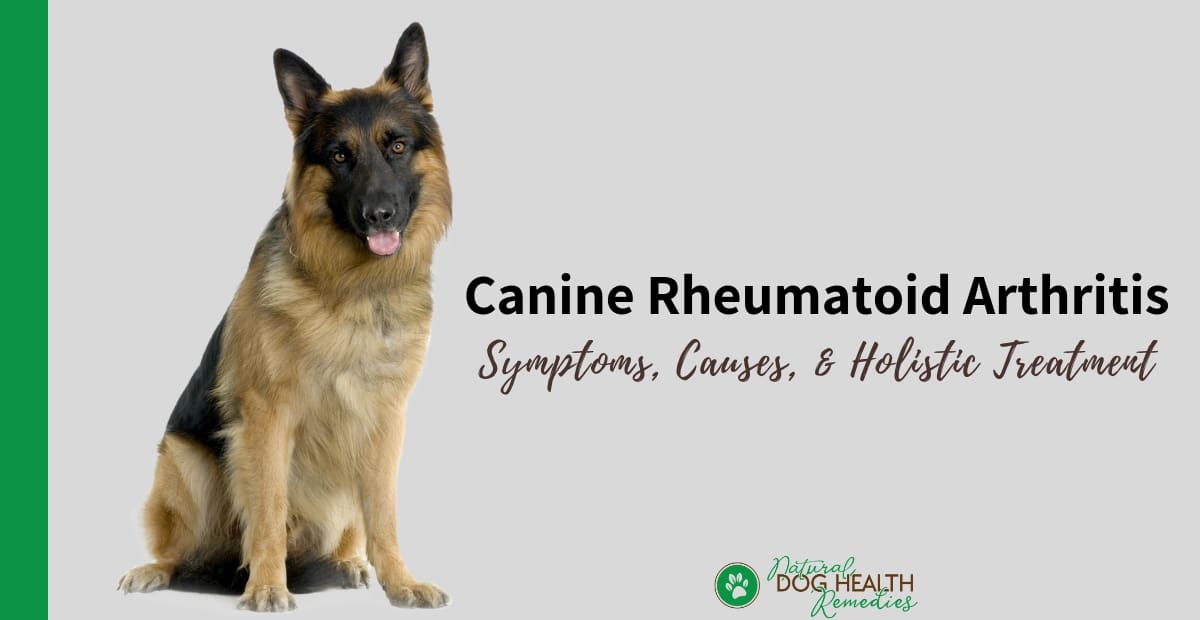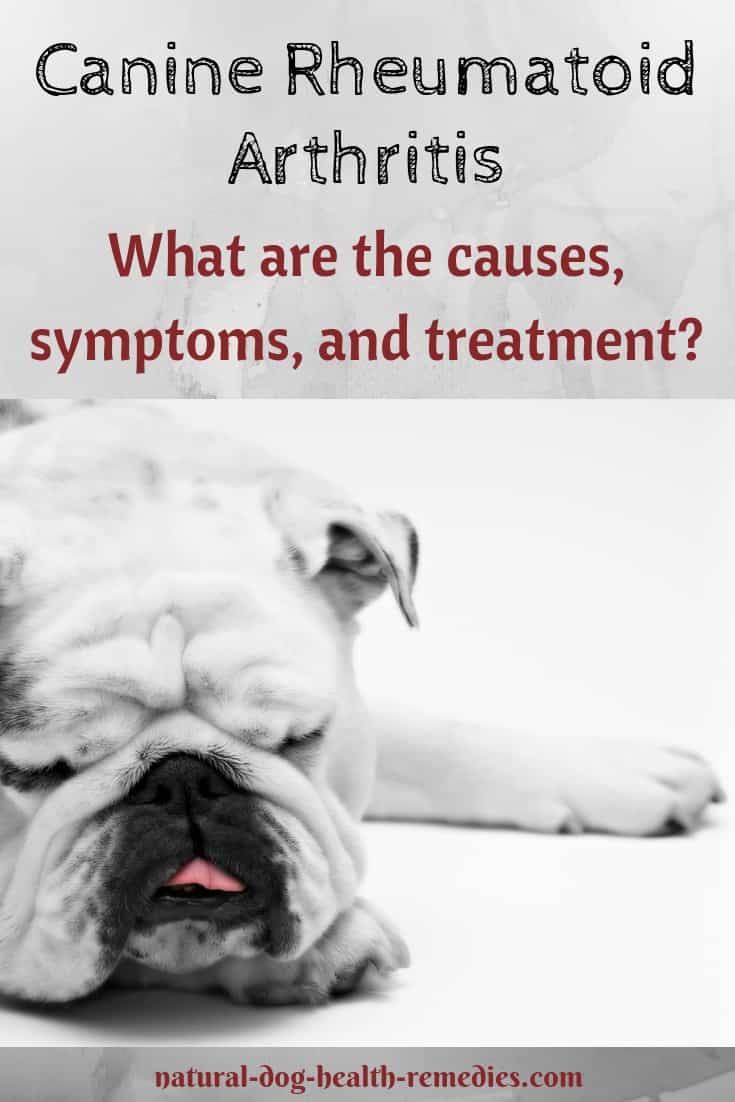Canine Rheumatoid Arthritis
(FTC Disclosure: If you make a purchase via a link on this page, I may receive a small commission, at no added cost to you.)

Overview
Rheumatoid arthritis is an autoimmune disease that affects the joints. The dog's over-active immune system fails to distinguish between proteins of the body and foreign proteins from the outside.
In the case of rheumatoid arthritis, the immune system produces antibodies and launches attacks on the cartilage surface, causing inflammation and pain.
Rheumatoid arthritis is a type of "erosive arthritis", which means that in addition to inflammation, cartilage and the bone in the joint surfaces are also destroyed.
What Causes Rheumatoid Arthritis in Dogs?
The exact reason for this abnormal immune response in rheumatoid arthritis is unclear.
Some veterinarians believe that it may be a result of infection, digestive system disease, or even cancer.
Sometimes, however, there is no other additional disease.
Canine rheumatoid arthritis is rather rare and primarily occurs in toy and small breed dogs, such as Miniature Poodles and Shetland Sheepdogs at approximately 4 years of age.
Canine Rheumatoid Arthritis Symptoms
This type of arthritis generally affects several joints.
One typical symptom is stiffness and shifting lameness.
Depending on the seriousness of the arthritis, the dog may have a slight limp or the limp is so debilitating that the dog cannot walk.
In some cases, you may see that the dog suddenly starts limping without warning. Sometimes, continued lameness and stiffness can lead to muscle atropy in the affected limb.
There is also swelling of the smaller joints, particularly the wrists and hocks.
Other accompanying signs and symptoms may include fever, appetite loss, and enlarged lymph nodes.
Treatment for Canine Rheumatoid Arthritis
Because immune-mediated joint disease destroys cartilage, osteoarthritis begins to develop. It is therefore important to control rheumatoid arthritis as quickly as possible.
Preventing the cartilage-attacking cells from developing will stop joint swelling and destruction.
Conventional treatment of mild to moderate cases of dog rheumatoid arthritis involves the use of anti-inflammatory drugs (e.g. such as NSAIDs) and immunosuppressive drugs such as corticosteroids (e.g. prednisolone).
Supplements of essential Omega-3 fatty acids which have anti-inflammatory properties are sometimes given to dogs to help reduce some of the inflammation.
In more serious cases in which the joint cartilage has been destroyed, surgery may be needed to repair the joint.
Once the disease is under control, it has to be monitored continuously to ensure that long-term treatment is working.
If your dog has been diagnosed with rheumatoid arthritis, your vet will certainly recommend strict rest in addition to treatment discussed above.
Canine Rheumatoid Arthritis Prognosis
Rheumatoid arthritis cannot be cured, it can only be managed and controlled. Long-term treatment and monitoring is necessary.
Here are some of the things that you can do to help your dog with RA:
- Exercise: Once your dog's conditions have improved upon treatment, ask your vet to recommend some form of light to moderate exercise to avoid muscle atropy in your dog. (Vigorous exercise should be avoided even during periods of remission.)
- Weight Control: Another important factor to consider is the dog's weight. If he is overweight, he should be placed on a calorie-restricted diet, since excessive body weight will add extra burden and stress to the joints.
- Bed: Get your dog a comfortable orthopedic bed that gives good support to his joints.
Natural Remedies for Canine Rheumatoid Arthritis
 Dogs with rheumatoid arthritis need the professional care of veterinarians.
Dogs with rheumatoid arthritis need the professional care of veterinarians.
However, it doesn't mean that we cannot use some safe and natural remedies to relieve the pain caused by arthritis, as well as to strengthen and protect the cartilage and joints so that the arthritic condition does not deteriorate drastically.
If your dog has been diagnosed with canine rheumatoid arthritis, discuss with a holistic vet the possibility of using holistic treatments in conjunction with drug therapy.
Please also read our page on Natural Treatment for Arthritis in Dogs to find out more about using herbs and other supplements to alleviate joint pain and to slow the deterioration of the arthritic joints.
Eldredge, et al. Dog Owner's Home Veterinary Handbook 4th edition (Wiley Publishing, 2007).
C.J. Puotinen, Natural Remedies for Dogs and Cats (Keats Publishing, 1999).
K. Schulz, DVM, The Pet Lover's Guide to Canine Arthritis & Joint Problems (Saunders Elsevier, 2006).





